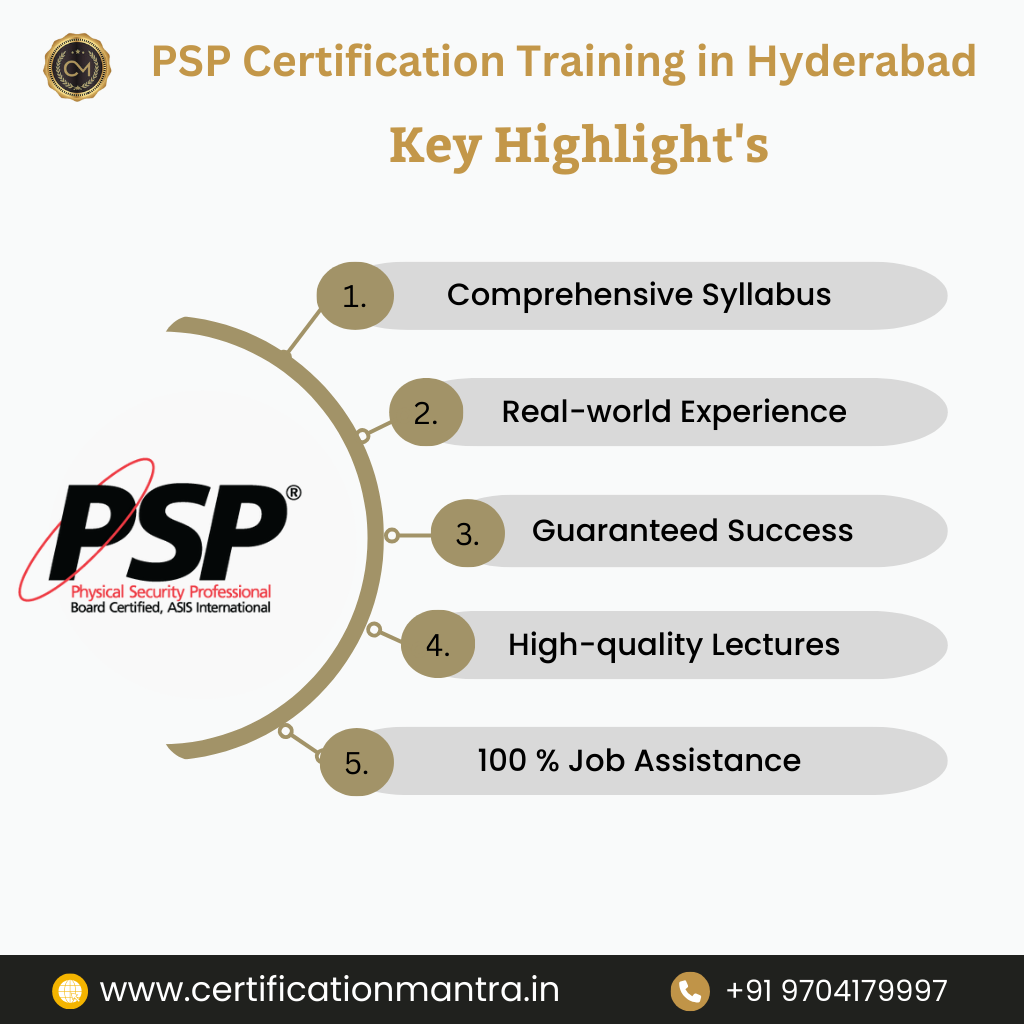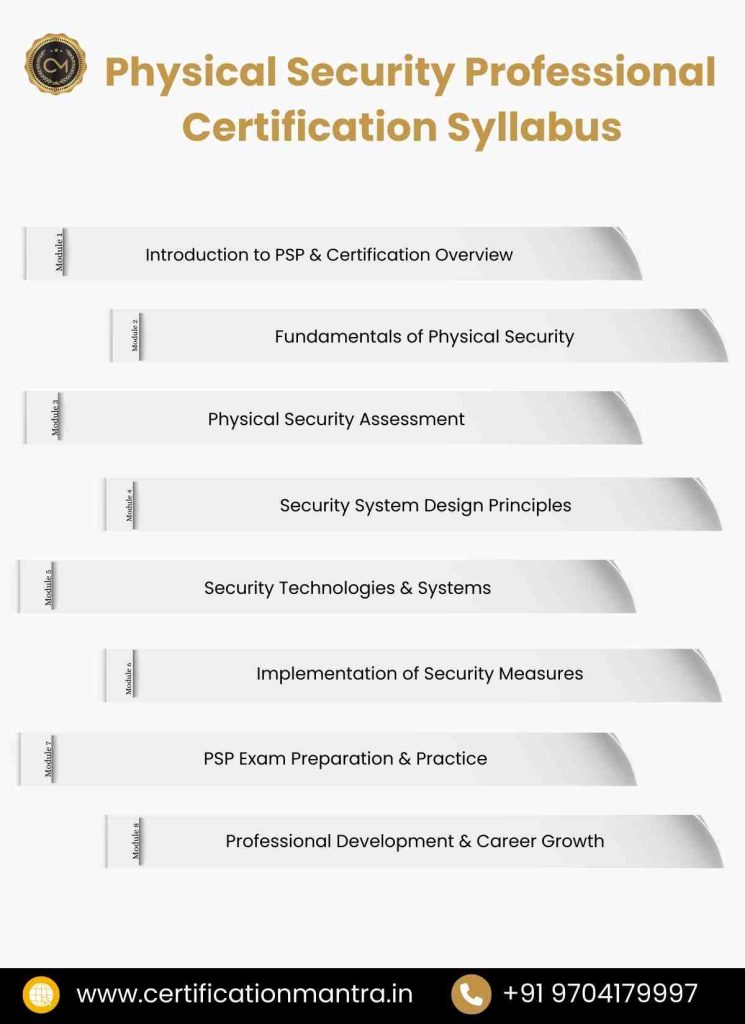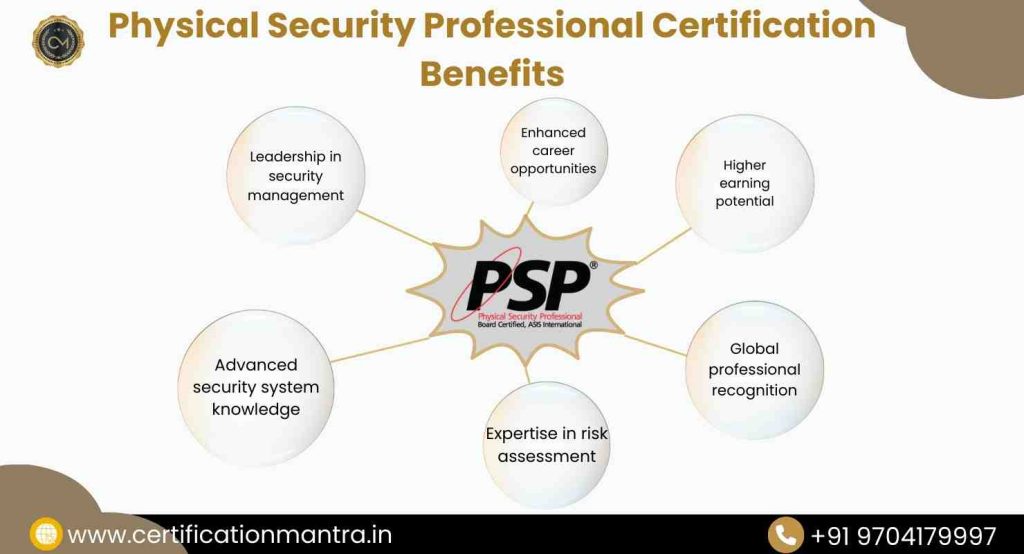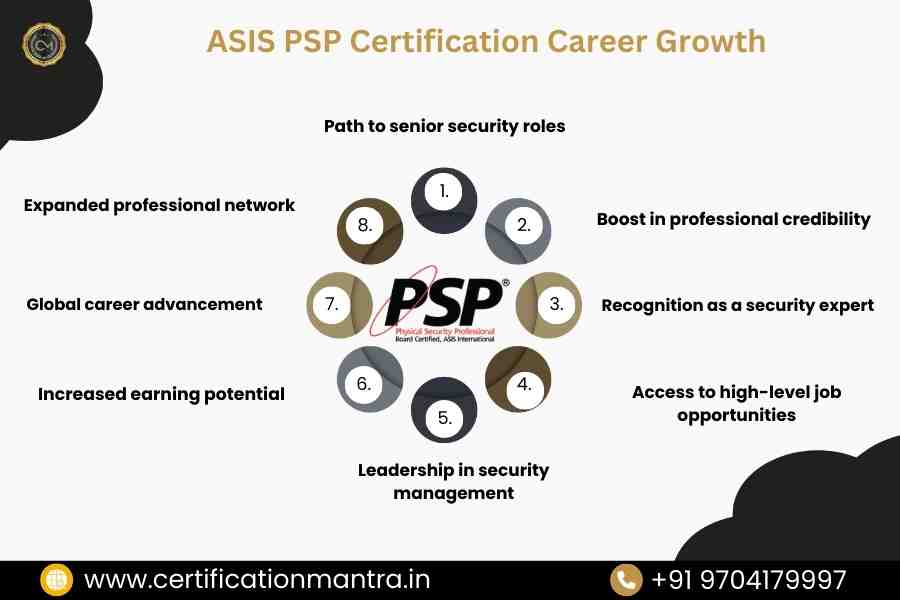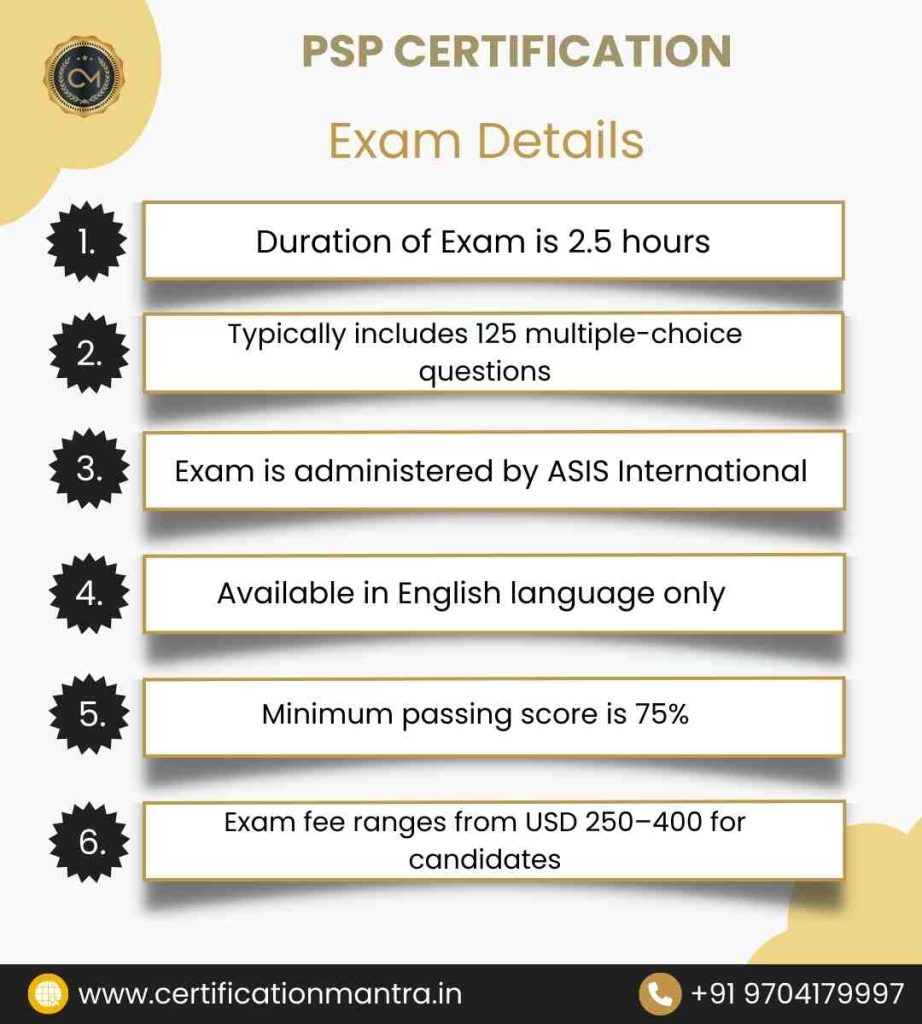Frequently Asked Questions

The PSP (Physical Security Professional) is an ASIS International certification that proves your expertise in physical security, risk assessment, and security systems.
It’s ideal for security managers, consultants, facility managers, and professionals responsible for designing or managing security systems.
Yes, you’ll need at least three years of professional experience in physical security roles.
No, a degree isn’t mandatory, but having formal education or training can give you an edge.
You can apply directly through the ASIS International website by creating an account and submitting your details.
The PSP exam fee varies, with ASIS members paying a discounted rate compared to non-members.
The exam is computer-based with multiple-choice questions covering risk assessment, security systems, and implementation.
You’ll have around two and a half hours to complete the exam.
It covers threat assessment, risk analysis, security system design, and implementation of security measures.
Yes! PSP is internationally recognized and highly respected in the security industry.
It’s challenging but manageable with proper preparation, practice tests, and study guides.
ASIS official study guides, reference materials, and online practice tests are highly recommended.
Yes, you’ll find multiple institutes in Hyderabad that provide PSP courses in both classroom and online formats.
The PSP exam can be taken any time of the year at authorized testing centers, with online options sometimes available.
Yes, rescheduling is allowed as long as you follow the ASIS rescheduling guidelines.
Don’t worry—you can retake the exam after the waiting period set by ASIS.
It’s valid for three years, after which you’ll need to renew it.
You need to earn 60 Continuing Professional Education (CPE) credits every three years.
CPE credits are points you earn by attending workshops, seminars, training, or publishing work in security.
No, membership isn’t mandatory, but it offers discounted exam fees and extra resources.
Yes, PSP-certified professionals usually enjoy higher salaries thanks to their expertise and worldwide recognition.
Freshers usually don’t qualify since the certification requires professional experience.
Yes, ASIS offers an online proctored option in addition to in-person exams at testing centers.
A mix of study guides, training courses, and mock exams works best.
PSP mainly focuses on physical security, but it touches on cyber risks where they impact physical systems.
Absolutely! PSP helps law enforcement and military personnel transition into corporate or private security roles.
CPP is broader, covering all security aspects, while PSP focuses specifically on physical security.
You can pursue roles like Security Manager, Consultant, Security Director, or Facility Security Officer.
Yes, many professionals prepare for PSP alongside their jobs with flexible training options.
It adds credibility, boosts your career, and sets you apart as a recognized physical security expert worldwide.

